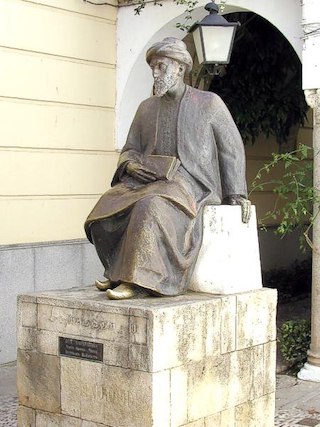On Medicine and Torah
The Bible and the Talmud form the basis of Jewish Law. Jewish Law is broadly speaking, millennials of rabbinic conversations of how to arrive at a consensus for Jewish people to follow the commandments and preserve Jewish continuity wherever they may be. Many works have been written throughout the ages, each one adding to the former, and seeking to preserve Jewish Law by taking into consideration the up-and-coming surrounding culture. One of these works is the “Mishneh Torah,” an all-inclusive guide to the dense 2,711 pages of Jewish thought found in the Talmud. The Mishneh Torah is arranged into 14 easy-to-follow thematic volumes. It is a massive and much-admired work written by Maimonides, known in the Jewish world by his acronym “the Rambam.” Born into a prosperous Jewish home in Spain, as a child Maimonides was a prodigy. He even began to tutor other children before he reached his Bar Mitzvah.
“Born into a prosperous Jewish home in Spain, as a child Maimonides was a prodigy”
When he was 10 years old, Maimonides and the Jewish community found themselves under a large number of radical Muslim rulers who made Jews second class citizens and threatened them with conversion to Islam, expulsion or death. Like thousands of other Jews, Maimonides’ family chose exile. For the next decade his family wandered around the Mediterranean and North Africa.
Tragedy struck when his younger brother David died. Maimonides was heartbroken. He writes that he was so grief stricken that did not get out of bed for a year. David had been the main bread-winner in the family which rendered the family almost poverty-stricken. So, Maimonides did what any good Jewish boy would do: he studied to become a doctor.
In Morocco he excelled in his studies and went on to become a renowned physician. When he moved to Egypt, his reputation spread and soon he was appointed as the chief physician to the Sultan.
After a long day’s work, he spent hours writing. Maimonides wrote about illnesses such as asthma, hepatitis, pneumonia and diabetes, long before Westerners even knew what they were. His various theses laid the crucial medical foundations for Western medicine today.
When it came to health, Maimonides first and foremost championed common sense. He was an advocate for moderation. Healthy living means going to bed early, getting up with the sunrise, not over-eating, balancing mental health and exercising every day. He believed that if a person followed these easy guidelines, then they would stand a much greater chance of living a long and healthy life.
“Until today, his works are revered by Jewish people all over the world”
The Rambam was an avid reader and not afraid of those who had a different world view. Not only did he study the Torah, he also learned about Muslim and Greek philosophy. This brought about much criticism from other Jewish scholars. Some even accused him of being “too Greek.” Yet despite the criticism – which often deeply hurt him – his opinions and wisdom have survived and thrived for 800 years. Until today, his works are revered by Jewish people all over the world. Many a yeshiva student has often followed in his footsteps by applying themselves firstly to full-time study of Jewish texts before going on to be a physician. These people never forget that it is Maimonides, one of the greatest Jewish minds the world has ever seen, who is the source of their inspiration.







